How to Grade Papers Faster? AI Assistant Helps Professors Save 70% Time (2026)
Late nights spent grading papers have become the norm for many professors. Stacks of student submissions pile up on desks while deadlines approach fast.
According to the Reddit discussion, an average professor spends 8-12 hours per week just on grading tasks. This leaves less time for research, course planning, and meaningful student interaction.
The workload keeps growing, but time stays the same. Many professors feel trapped in endless grading cycles that drain their energy and passion for teaching.
The Heavy Burden of Paper Grading

Grading student papers involves much more than just checking facts and grammar. Professors must evaluate arguments, provide detailed feedback, and ensure fair assessment across all submissions.
Key challenges professors face include:
- Reading through lengthy papers multiple times
- Writing detailed comments that help students improve
- Keeping grading standards consistent across all papers
- Managing time between grading and other academic duties
The emotional toll is real too. Professors often work late hours to meet grading deadlines. This creates stress and takes time away from family and personal life. Many feel guilty when they cannot provide as much feedback as they would like.
Subject-specific grading adds another layer of difficulty. Literature professors need to evaluate creative analysis. History professors must check source citations and argument structure. Each field has its own grading requirements that take specialized knowledge and time.
AI-Powered Grading Support Changes Everything
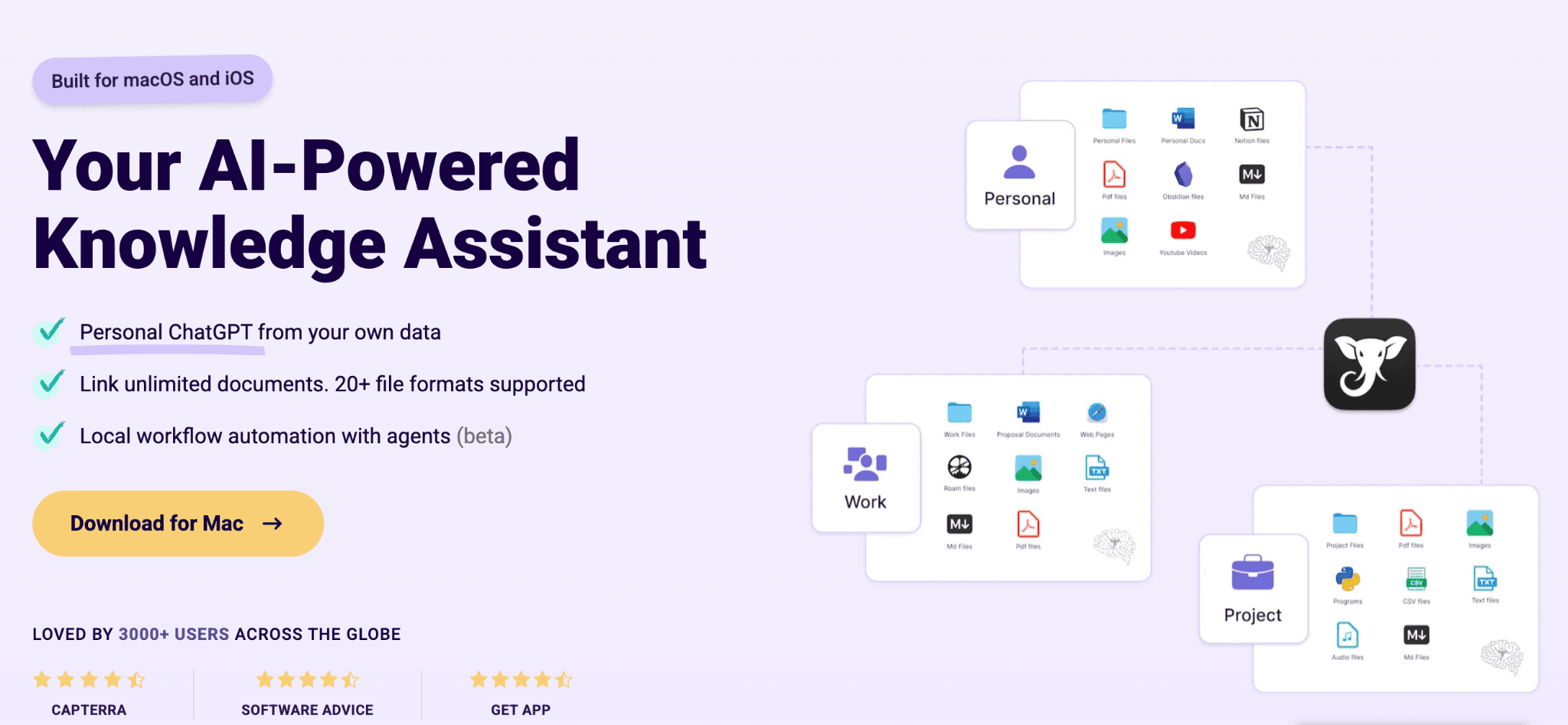
Modern AI technology offers a solution that works alongside professors, not instead of them. Elephas AI assistant helps speed up the grading process while keeping the human touch that students need.
This AI tool works across Mac, iPhone, and iPad devices. It processes information locally, which means your student data stays private and secure. The transformation happens quickly - professors can cut their grading time by up to 70% while improving feedback quality.
Elephas helps with:
- Consistent application of grading criteria
- Quick identification of common writing issues
- Generation of helpful feedback suggestions
- Organization of grading workflows
Step-by-Step Process for Faster Grading
Step 1: Setting Up Your Grading Brain
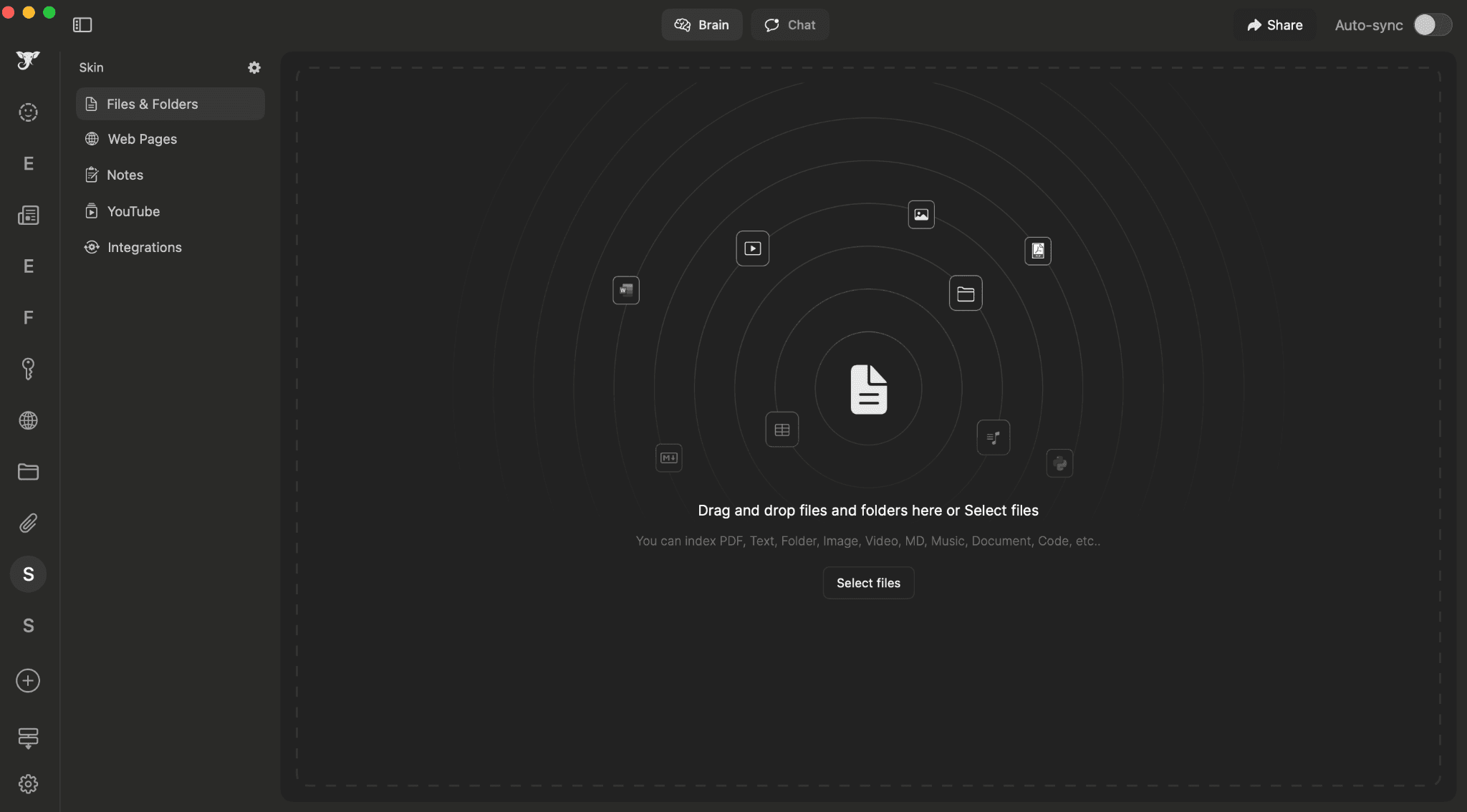
Creating a dedicated "Brain" in Elephas takes just a few minutes. This Brain becomes your personal grading assistant that knows your specific requirements and standards. You can upload PDFs, Excel sheets, videos, etc.
Upload your key grading materials to this Brain:
- Course rubrics and grading criteria
- Sample papers with different grade levels
- Your past feedback comments that worked well
- Assignment instructions and guidelines
The setup process is simple and does not require any technical skills. Once your Brain is ready, it remembers your grading style and preferences for all future use.
Step 2: Uploading Student Papers
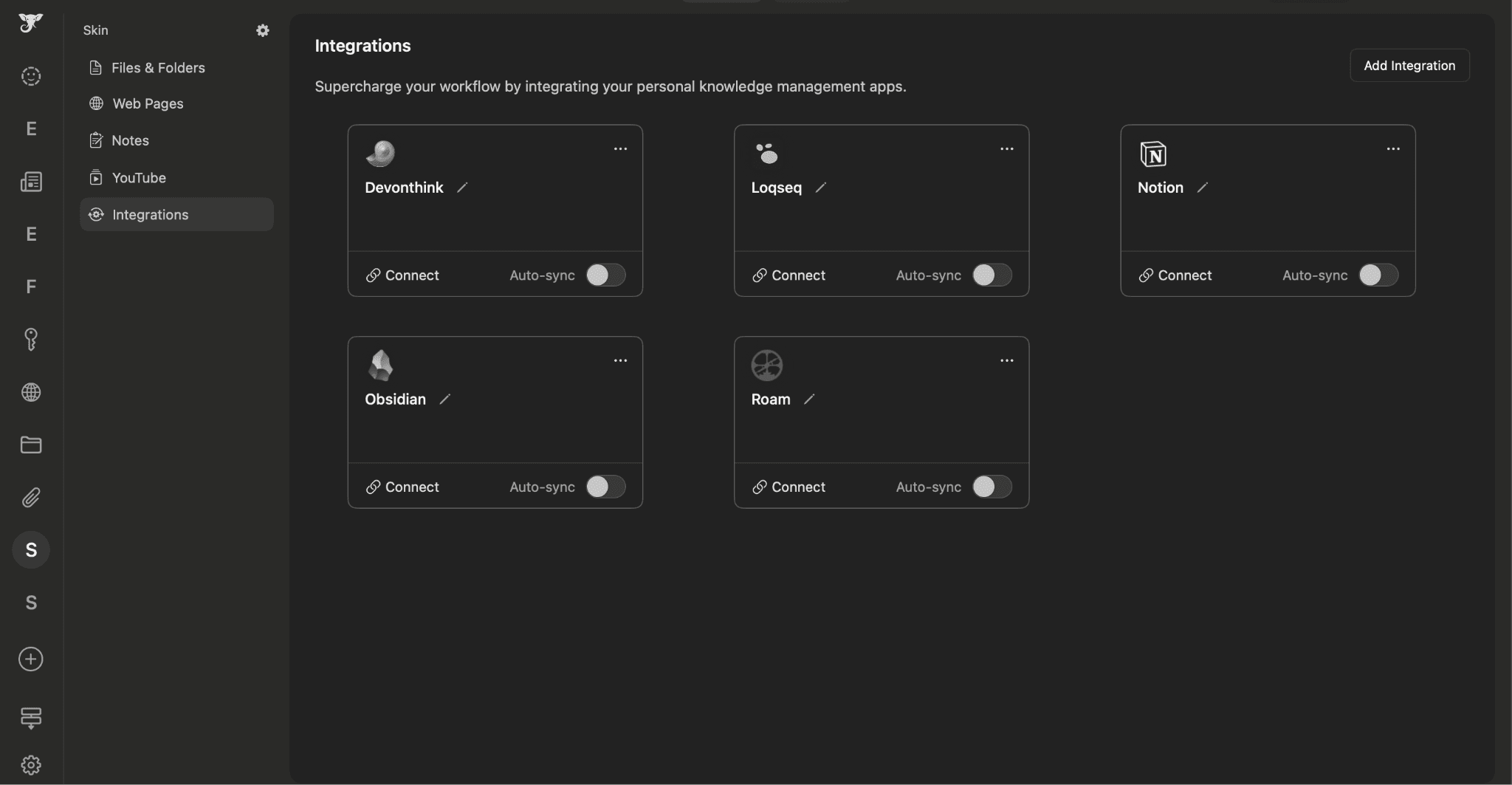
Elephas accepts various file types including PDFs, Word documents, and text files. You can even integrate with other knowledge management tools like notion, obsidian, devonthink etc The AI processes each paper and indexes the content for quick analysis.
The system handles:
- Multiple file formats without conversion
- Batch uploading of several papers at once
- Automatic organization by assignment or date
- Local processing that keeps data secure
Your student papers never leave your device. All analysis happens locally, which protects student privacy and meets academic data security requirements.
Step 3: Getting Smart Feedback Suggestions
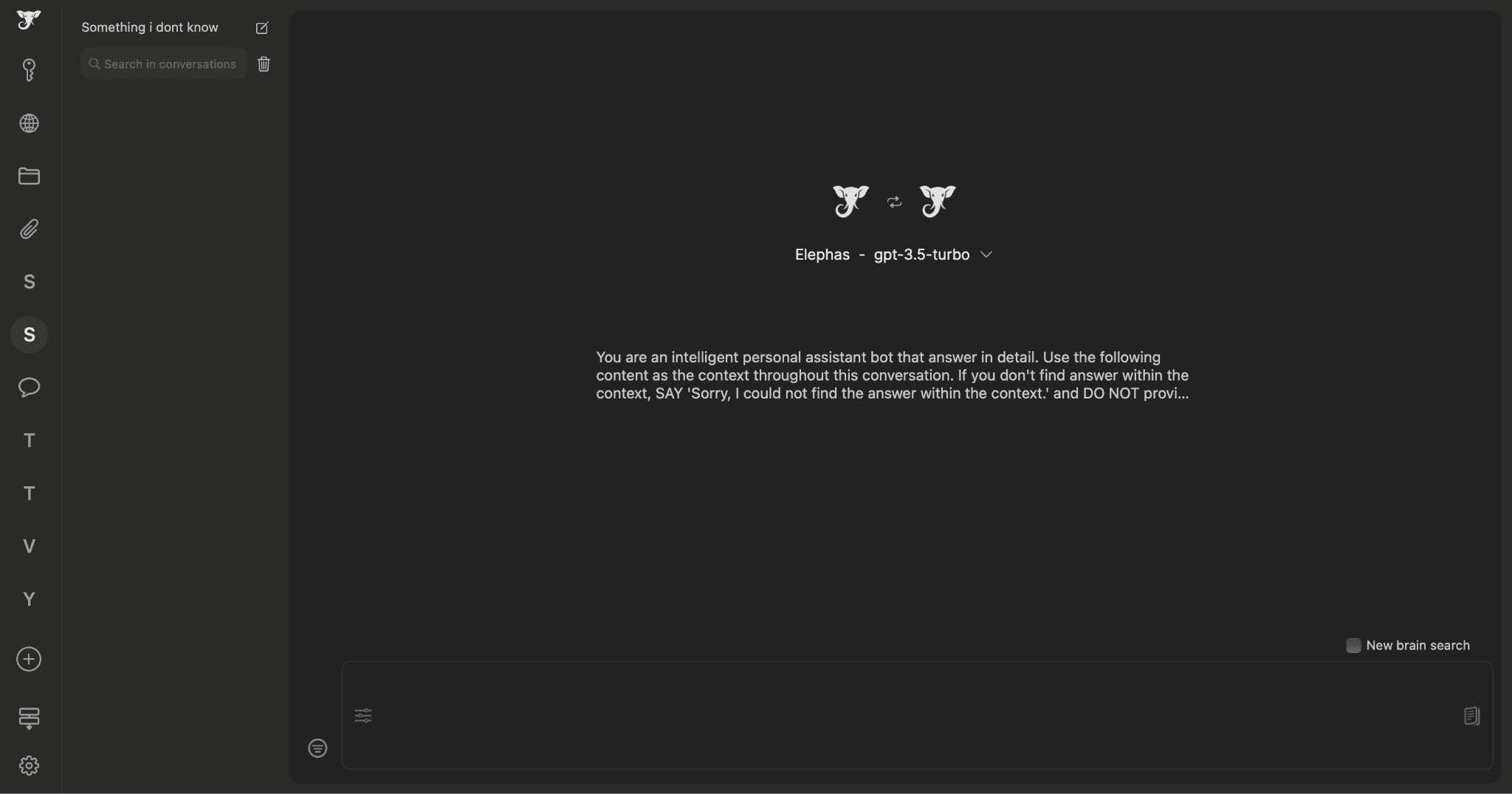
Ask Elephas specific grading-related questions to get helpful insights. The AI understands your rubric and provides consistent feedback based on your established criteria.
Useful query types include:
- "Grade this paper using my rubric for Essay Assignment 1"
- "What are the main strengths and weaknesses in this argument?"
- "Check if this paper meets the citation requirements"
- "Suggest specific improvements for the conclusion paragraph"
The AI provides detailed responses that match your grading style. You can refine your questions to get more targeted feedback or deeper analysis of specific sections.
Step 4: Applying Consistent Standards
Elephas helps maintain uniform grading standards across all student papers. The AI remembers your grading criteria and applies them consistently, reducing the risk of unfair assessment.
Benefits of consistent grading:
- Students receive fair evaluation regardless of grading order
- Common errors get identified and addressed uniformly
- Grading rubric gets applied the same way every time
- Quality feedback stays consistent throughout the semester
The AI suggests grades based on your rubric but always leaves the final decision to you. This keeps your professional judgment at the center of the grading process.
Step 5: Building Your Grading Workflow
Make AI-assisted grading part of your regular routine. Start with one assignment type and gradually expand to other grading tasks as you get comfortable with the system.
Tips for smooth integration:
- Begin with shorter assignments to test the system
- Use AI suggestions as a starting point for your own comments
- Review and adjust feedback before sharing with students
- Track time savings to see your progress
Most professors notice significant time savings within the first week of use. The system gets better at matching your style as you provide more examples and feedback.
Case Study: Literature Professor Transforms Grading

Note: To maintain confidentiality, the name and specific details have been changed to maintain privacy
Dr. Sarah Martinez teaches English Literature at a mid-size university. She typically spent 20 hours per week grading essay assignments for her 120 students across three courses.
After setting up Elephas with her grading rubrics and feedback examples, her weekly grading time dropped to just 6 hours. Elephas helped identify common issues like weak thesis statements and citation problems across multiple papers.
Student feedback quality improved too. The AI suggestions helped Dr. Martinez provide more specific and actionable comments. Students began showing improvement in their writing much faster than in previous semesters.
"The AI doesn't replace my expertise - it amplifies it. I can now give every student the detailed feedback they deserve without sacrificing my weekends."
Results after one semester:
- 70% reduction in grading time
- More consistent feedback across all papers
- Improved student writing scores
- Better work-life balance for the professor
Key Benefits of AI-Assisted Grading
The advantages go beyond just saving time. Professors who use AI grading support report several important improvements:
- Time Savings: Most professors cut their grading time by 60-70% while maintaining quality standards. This frees up hours for research, course development, and student meetings.
- Better Feedback Quality: AI suggestions help professors provide more specific and helpful comments. Students receive clearer guidance on how to improve their work.
- Reduced Stress: Less late-night grading means better sleep and lower stress levels. Professors feel more energized and positive about their teaching duties.
- Consistent Standards: AI helps apply grading criteria uniformly across all papers. This creates fairer assessment and builds student trust in the grading process.
Getting Started with AI Grading
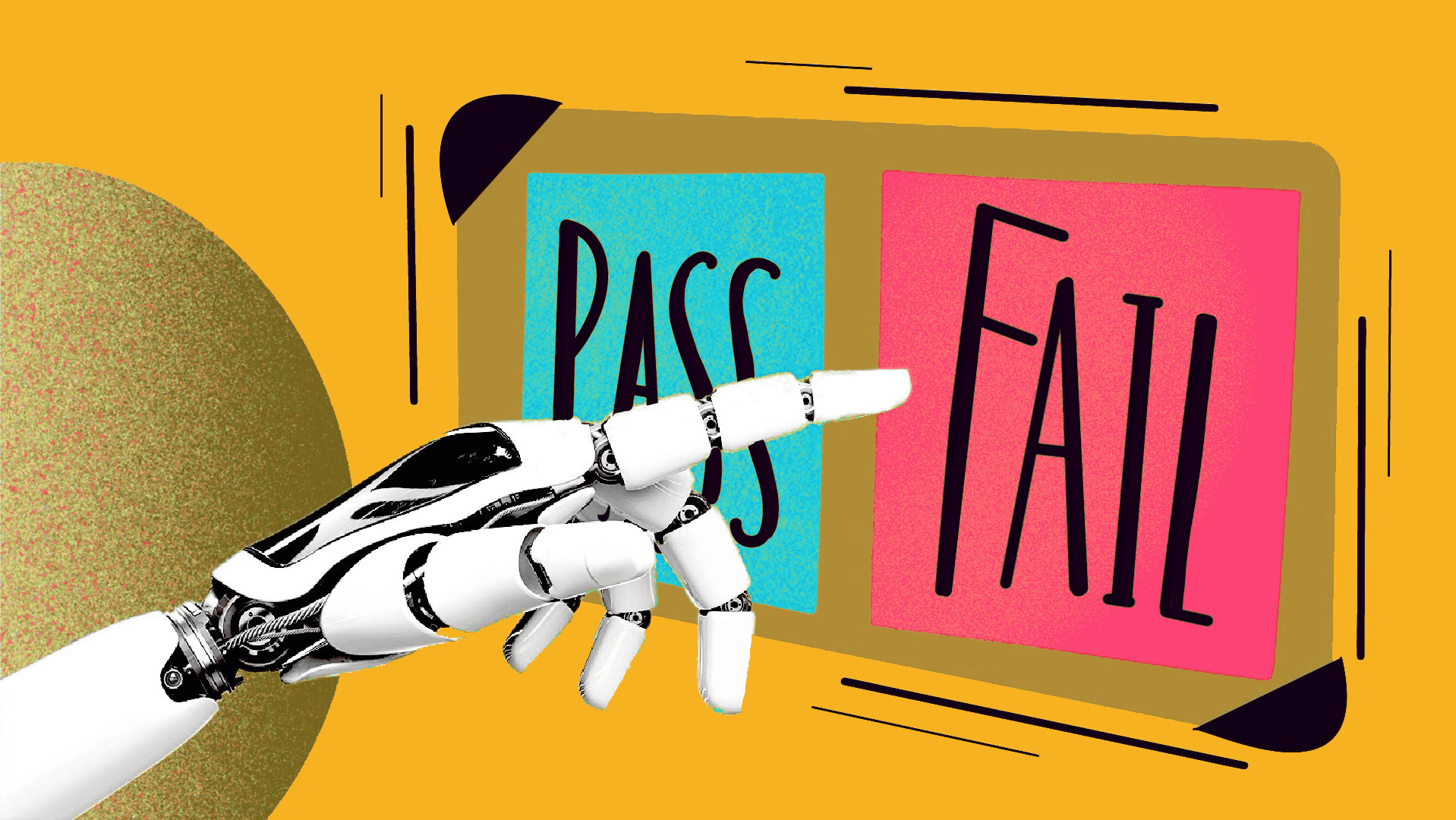
Begin your journey with AI-assisted grading today. The basic plan works well for most professors and includes all essential features for paper grading.
Quick wins in your first day:
- Upload one assignment rubric and see how AI interprets it
- Test the system with 3-5 sample papers
- Generate feedback suggestions for common writing issues
- Set up your first grading Brain with course materials
The learning curve is gentle. Most professors feel comfortable using the system within a few grading sessions. Start with shorter assignments and build up to longer papers as you gain confidence.
Visit Elephas to begin your free trial and see how much time you can save on your next grading session.
Pro Tips for Advanced Users
- Organize Multiple Brains: Create separate Brains for different courses or assignment types. This keeps grading criteria organized and prevents confusion between different subjects.
- Use Template Feedback: Save your most common feedback comments as templates. The AI can apply these consistently while customizing them for specific papers.
- Batch Processing: Upload multiple papers at once and process them in sequence. This creates a smooth workflow that maximizes your efficiency gains.
Final Thoughts
AI-assisted grading changes the teaching experience by removing tedious tasks and improving feedback quality. Professors keep full control over grades while getting smart assistance with time-consuming work.
The technology works best when combined with professional expertise. AI handles pattern recognition and initial assessment while professors provide the critical thinking and personal touch that students value.
Start small, test the system with familiar assignments, and gradually expand your use. The time savings and improved work-life balance make the investment worthwhile for any professor serious about efficient grading.

Comments
Your comment has been submitted